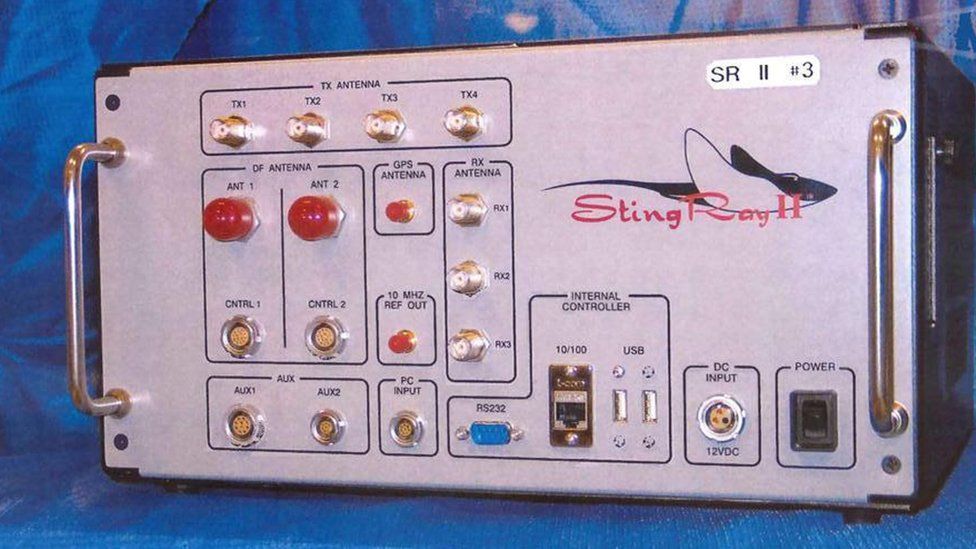US tightens mobile phone tracking rules
- Published

The US justice department says federal agencies will have to obtain search warrants to use technology that tracks mobile phones under new guidance.
Until now agencies such as the FBI had not needed a warrant to use machines called cell-site simulators that track the locations of phones in the area.
Authorities say they have been an important tool in fighting crime.
However, civil liberties groups have expressed concern at potential invasions of privacy.
The new rules will come into effect immediately and also mean that "when the equipment is used to locate a known cellular device, all data must be deleted as soon as that device is located, and no less than once daily".
"Additionally, the policy makes clear that cell-site simulators may not be used to collect the contents of any communication in the course of criminal investigations. This means data contained on the phone itself, such as emails, texts, contact lists and images, may not be collected using this technology," according the justice department.
'Limited exceptions'
The American Civil Liberties Union (ACLU) called the new rules "a positive first step".
"However, this policy... does not apply to other federal agencies or the many state and local police departments that have received federal funds to purchase these devices," Nathan Freed Wessler, staff attorney at the ACLU, said.
The ACLU has previously said it has identified 53 agencies in 21 states that own the equipment.
The ACLU also expressed concern that the new rules state that "there are limited exceptions in the policy for exigent circumstances" where a search warrant will still not be necessary.
By mimicking a legitimate mobile tower and tricking every phone in range into connecting to them, cell site simulators "catch" the international mobile subscriber number (IMSI) and electronic serial number (ESN) of each and reveal the exact location of its user.
Campaigners say they are therefore very difficult to use in a targeted manner, as when used in urban areas thousands of people's mobile phones are swept up in that dragnet.